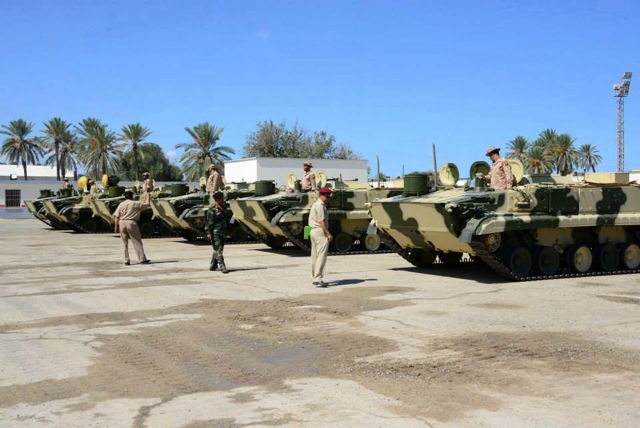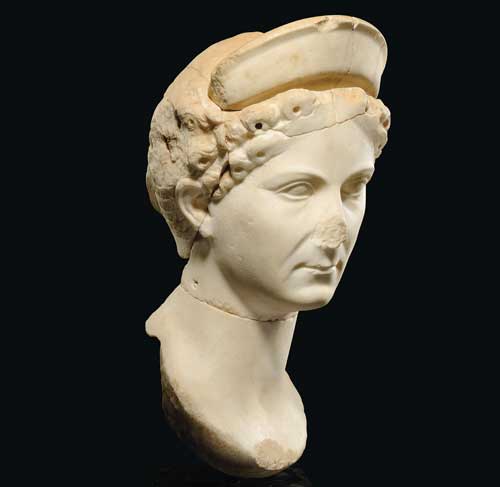By Ashraf Abdul-Wahab.

Tripoli, 25 September 2013:
Ten Russian BMP-3 infantry fighting vehicles, the first part of an order made by the Qaddafi . . .[restrict]regime, have been handed over to the Libyan army. The handover ceremony took place yesterday morning at Mitiga Air Base. Attending were the Chief of Staff, General Abdel-Salam Jadallah Obeidi and the Chief of Staff of ground forces, Brigadier General Yousef Abu-Hajar, together with the Russian Ambassador, Ivan Molotkov, and a Russian delegation.
The BMP3, equipped with modern system-guided missiles, is among of the most heavily armed vehicles in service in the world. In the Arab world, both Kuwait and the UAE use it.
General Obeidi welcomed the guests and praised what he called the close ties between Libya and Russia based as they were, he said, on mutual respect. The re-activation of the deal, he added, would help make Russia an important partner in the present process of rebuilding the Libyan army.
For his part, Molotkov expressed his country’s readiness to contribute to the task through training, rehabilitation and enabling Libya to acquire modern technology.
The ambassador also presented a message of appreciation from the President Vladimir Putin to the Chief of Staff.
In the 1970s and 80s, according to the Russian media, Libya acquired from the Soviet Union more than 2,000 tanks, 2,000 armoured infantry fighting vehicles and armoured personnel carriers, some 450 self-propelled artillery pieces as well as a number of combat aircraft and large quantities of small arms. During the period, it was among of the largest buyers of Russian-made armaments in the world.
In 2010, Libya and Russia signed a $1.75-billion military cooperation to upgrade Russian-made tanks and weaponry used by Libya since the Soviet era. However, delivery of the BMP3 tracked vehicles, closely resembling battle tanks but in fact designed to destroy tanks, was halted as a result of the arms embargo imposed by the UN at the start of the revolution in 2011.
Russia lifted its embargo in May, but it is only now that arms are beginning to be delivered. The BMP3s are the first official consignment of offensive weapons to Libya since the revolution.
With the revolution, Russia was said to have lost $4 billion in military sales according to Russian arms export monopoly Rosoboronexport and the Federal Service for Military-Technical Cooperation.
This past year, though, Russia has been keen to reactivate arms sales. A fortnight ago, when the Foreign Minister, Mohamed Abdulaziz, was in Moscow for talks, his Russian counterpart, Sergei Lavrov spoke “good prospects” of Russian resuming supplies of military equipment to Libya following talks between both men.
With input from Aimen Eljali [/restrict]








